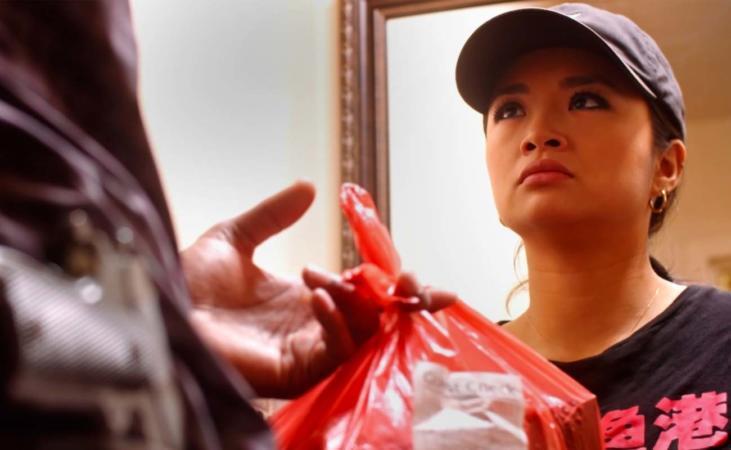In 2017, I enthusiastically decided to take on the enormous task of making the no-budget feature film Take Out Girl, the story of a 20-year-old Asian American woman who parlays her food delivery expertise into a profitable drug hustle to save her family restaurant. But as I began writing and dedicating my life to this project, I became keenly aware that Take Out Girl seemed like the wrong move for my future as a filmmaker. But not because I lacked the ability to make the film entertaining or socially relevant, far from it. I knew that the film had the potential to be viewed with contempt or ignored altogether because I’m Black and a man. But I’d be telling the story of an Asian American woman, and as a result, people would assume the film had to be this cultural Frankstein monster of sorts. A film that wasn’t Asian enough but wasn’t a “Black movie” either.
I’ve applied to every filmmaking workshop and lab over the past decade. I’m grateful that diversity incubators exist, but I’ve noticed these incubators move us away from an all-white exclusivity in Hollywood to another kind of exclusivity. The sort of exclusivity built around the idea that if you aren’t precisely the thing you’re making a film about, you’re not qualified to have a perspective on it, let alone direct a movie about it. So there’s a string of Black filmmakers making films with the word Black in the title. Brown filmmakers are making films about crossing the border, middle eastern filmmakers making films about the effects of 9/11 and so on and so forth. Before I knew it, this trend was everywhere. SXSW, Slamdance, Sundance, Tribeca — even the marketing for these movies focuses on the autobiographical nature of the films more than the skill it took to make them and the merits of the films themselves.
Take Out Girl wasn’t color-coded as neatly as the films blowing up at SXSW or Sundance. But after thinking about it long and hard, I had a life-changing epiphany. I realized that it is my duty as a Black man to show the world the beauty of my culture through my movies, but it’s HONOR to give a platform to any underrepresented community with my filmmaking endeavors. I realized that I direct films and television to vividly depict a character’s complex journey toward being loved, finding stability, and discovering their significance. It’s through my protagonist’s choices, sacrifices and compromised ethics that I deliver a thought-provoking social commentary on how alike we are, regardless of our skin color and social upbringing.
In other words, Tera, the lead female character of my Asian American narrative, is me. And she’s you. Tera is everyone that’s yearned for upward mobility but felt trapped by systemic poverty. She’s everyone that’s ever watched their mother suffer to give them a better life. She’s everyone who’s ever felt like the American Dream wasn’t for people like them. It’s been the most rewarding experience of my career to have the Black, Asian and Latin community embrace this film and shower it with wins and screenings at the American Black Film Festival, Martha’s Vineyard African American Film Festival, Las Vegas Black Film Festival, CAAM Fest, Boston Asian, AAIFF, Disorient Film Festival, and Urbanwolrd.
I’m a little ashamed to admit it took me about 35,000 hours of writing, casting, shooting, editing, and screening this film to discover how much of myself, a Black man from Milwaukee, ended up in these Asian American characters from Los Angeles. But it’s true. And as a result, today, my opinion is that the magic of cinema is the ability to make my audience walk in the shoes of a Black man whether they realize it or not.
Take Out Girl will be released on May 18, 2021 via 1091 Pictures. Hisonni Johnson is the co-writer and director of the film.

